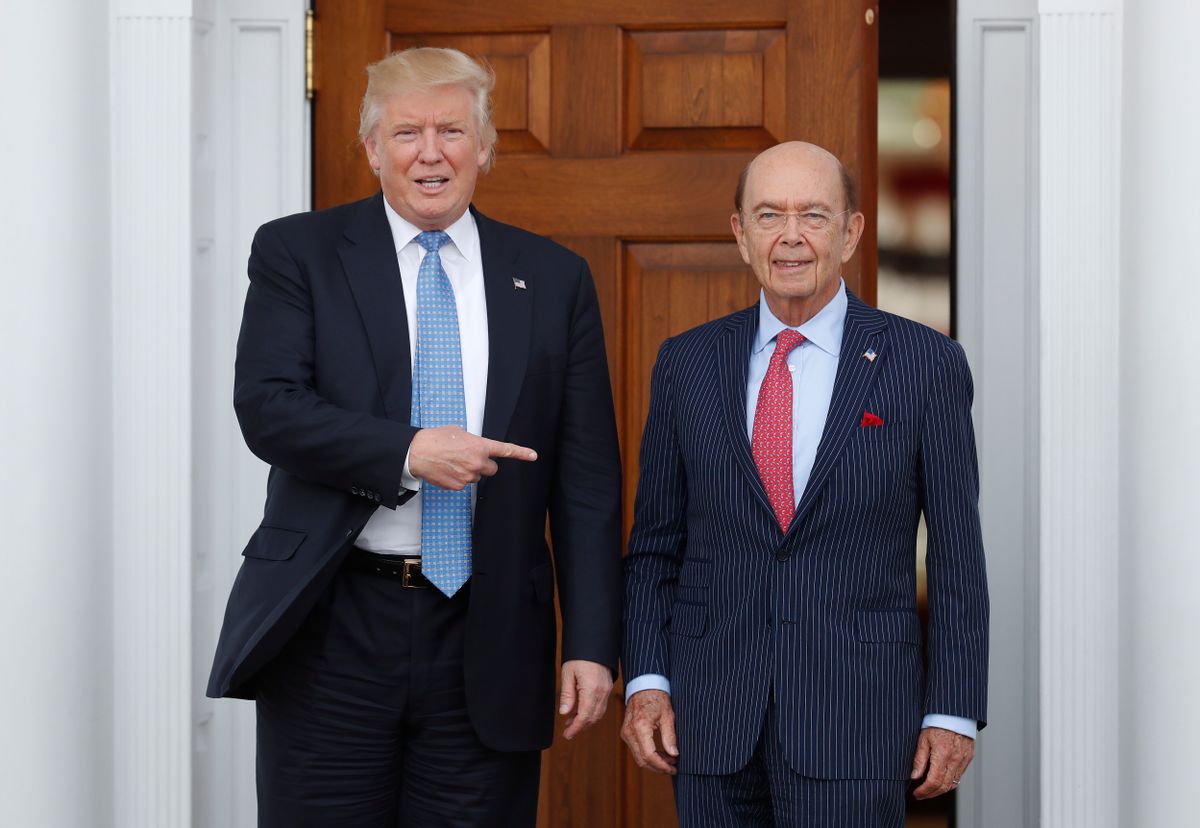President Donald Trump has sent Secretary of Commerce Wilbur Ross to China, where he arrived on Saturday in the hope of negotiating better trade deals between that country and the United States.
Ross's goal is to convince China to buy more American goods as well as American energy products, according to Reuters. He is scheduled to have dinner on Saturday with Chinese Vice Premier Liu He, who will represent the Chinese government as its lead negotiator in this trade dispute with the United States. Ross and Liu are also scheduled to meet again on Sunday, presumably to continue their conversations on matters of trade policy
One of the main issues at stake is the $375 billion trade deficit between the United States and China. To address this, the Trump administration has called for China to reduce the deficit by $200 billion annually by 2020 (the final year of Trump's current term), as well as respect the intellectual property rights of American companies and stop subsidizing the Chinese steel and aluminum industries in ways that have led to overproduction. To achieve this goal, the United States announced earlier this week that it would continue to pursue tariffs on $50 billion worth of Chinese imports, as well as tighten export control and impose limitations on Chinese investments in this country.
China has responded by threatening its own tariffs on American goods, sparking fears of an upward-spiraling a trade war.
While Trump could in theory be in a position of strength when it comes to negotiations with China — after all, other nations have similar complaints to America's about Chinese trade practices — he has weakened his hand considerably by announcing earlier this week that he was imposing metal tariffs on American allies like the European Union, Canada and Mexico, according to the New York Times. He is also at a disadvantage because of his reputation for erratic behavior that at times undermines the ability of administration representatives like Ross to claim to be effectively representing his own positions.
Indeed, recent reports about Ross have specifically worked to undermine the commerce secretary's own credibility. In Oval Office meetings Trump has berated Ross as being "past his prime" and "no longer a killer," even diminishing some of Ross's past achievements like getting the Chinese to reduce their steel production and convincing China to import American beef in return for America importing Chinese cooked chicken.
On a deeper level, though, there are systemic risks to the American economy if Trump winds up going through with his tariff threats against China.
"Well, it's going to impact a variety of sectors of the American economy," Ed Gerwin, a senior fellow for trade and global opportunity at the Progressive Policy Institute, told Salon in April. "There are, there have been a range of studies that indicate that hundreds of thousands of jobs, [if] not more, would be lost in sectors that would be impacted negatively by these tariffs. I think what really concerns me is that the president seems to be more than willing to escalate these tariffs. There were initial tariffs imposed with respect to aluminum and steel and now other tariffs that the Chinese have announced, and then the president has announced further tariffs with respect to China's intellectual property violations. And then when the Chinese said they were gonna retaliate against those, the president said, 'Well, let's just throw more tariffs into the mix!'"
Gerwin added, "It's a very dangerous game. It's reminiscent of what happened in the late 1920s and early 1930s that led to a real disaster for global trade. And as a nation that increasingly relies on trade — I think we are something like 14 percent of the economy relies on trade — it's a very dangerous game for us."
Trump is the first outspokenly protectionist president to serve in more than 80 years. The last president to pursue aggressive trade-protection policies was Herbert Hoover, who left office in 1933. In effect, all his successors, from both major parties, have pursued free trade policies as a cornerstone of America's broader economic and international philosophy.
In related news, America's relationship with China became tenser on Saturday after China deployed anti-ship missiles, surface-to-air missiles and electronic jammers to the South China Sea on Saturday, according to the BBC. Because five nations in addition to China have various claims to the sea — including Brunei, Malaysia, the Philippines, Taiwan and Vietnam — the decision to send missiles there has been perceived as an attempt to intimidate or coerce other countries with rival interests.
"Despite China's claims to the contrary, the placement of these weapon systems is tied directly to military use for the purposes of intimidation and coercion," Secretary of Defense James Mattis declared in response to the news about the missiles' deployment.

Shares